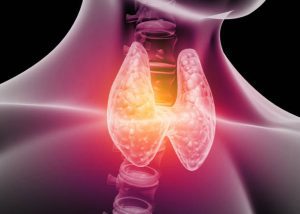Additional Common Conditions and Procedures
Large symptomatic thyroid and parathyroid cysts can be treated by draining and injection of purified alcohol, also known as Percutaneous Ethanol Injection. Mikhail Signalov, DO, has extensive training and experience with this simple, yet effective procedure. This procedure can also be used in selected cases of thyroid cancer.

Some conditions relating to the thyroid may not be able to be controlled through medications. Surgery may be required for efficient treatment. A thyroid lobectomy and hemilobectomy are surgeries that remove part of the thyroid gland, whereas a total thyroidectomy removes the entire thyroid gland. Thyroid cancer treatment usually requires a total thyroidectomy and, in some cases, removal of lymph nodes in the neck.
Noncancerous nodules sometimes become large enough to cause pain, swallowing, and breathing problems. When this occurs, our specialists will explain their recommendations of surgical procedures. A patient who has part of their thyroid gland removed may not need to take hormone replacement after surgery. However, a patient who has the entire gland removed, will need to take hormone replacement for the rest of their life.
Diabetes
Diabetes is a disease in which your blood glucose, or blood sugar, levels are too high. Glucose comes from the foods you eat. Insulin is a hormone that helps the glucose get into your cells to give them energy.

